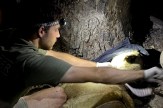Teamwork propels Northeastern to victory in Collegiate Rocket League Championship
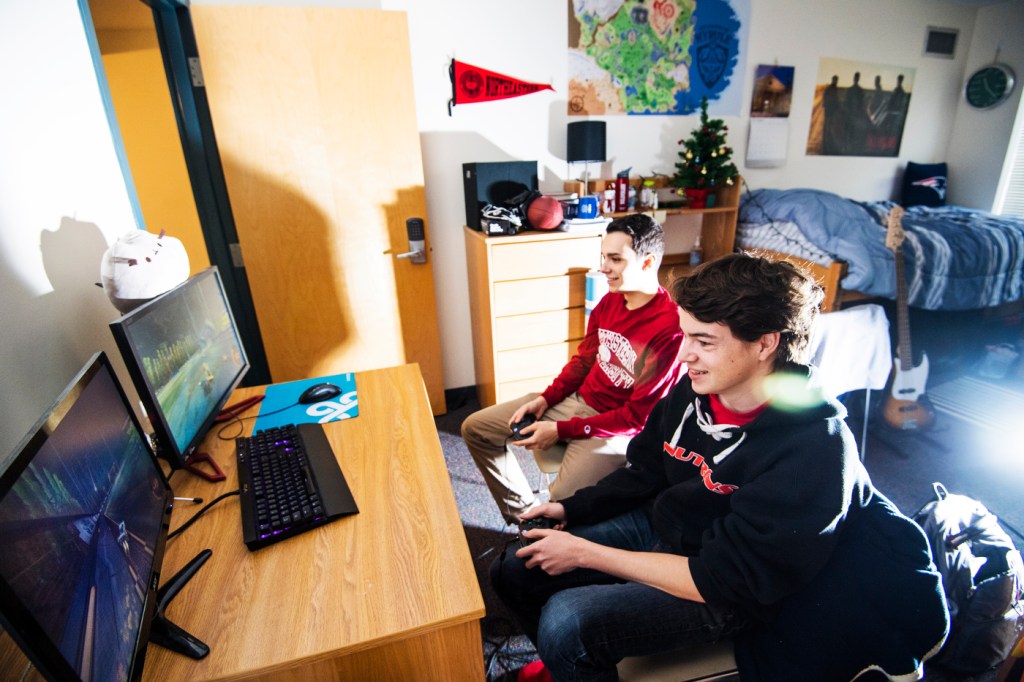
Perhaps it’s only natural that Northeastern students Florent Astié, Steven Rose, and Ryan Heminway would win the inaugural Collegiate Rocket League Championship. After all, they grew up playing soccer, and “Rocket League,” a team-based video game, involves hitting a large ball into your opponent’s goal.
The primary difference is that you don’t use your feet to score—you use rocket-powered vehicles. As Heminway explained, “The game has the same feel and flow of soccer, except that it’s played on a small pitch with cars.”
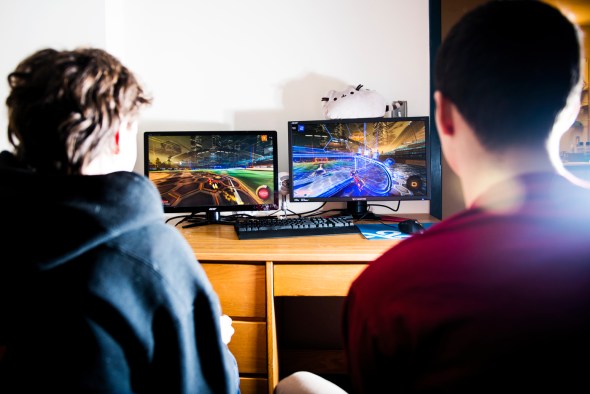
Photo by Adam Glanzman/Northeastern University
The 2017 Collegiate Rocket League, which launched this fall, featured 248 teams divided among four regional conferences. Northeastern was one of eight teams to qualify for the league championship, which was held online last weekend. The finals were broadcast on Twitch, which The New Yorker described as “a streaming platform whose popularity has turned recreational gaming into an improbably viable career.”
As a reward for defeating Ohio State in the championship match, Astié, Rose, and Heminway each received a $5,000 scholarship. “People say you should do whatever you enjoy doing,” Astié said. “I’ve always thought of ‘Rocket League’ as a hobby, but it’s wonderful if I can help pay for college by playing games.”
Astié, E’21, Rose, E’19, and Heminway, E’21, are part of Northeastern’s esports club, a group of approximately six dozen PC gamers who play “Rocket League,” “Overwatch,” and “Counter-Strike” competitively. The trio has collectively played “Rocket League” for more than 3,000 hours since the game was released in July 2015, practicing online in their respective apartments and the Ryder Hall game room. But it hasn’t interfered with class, co-op, or their social lives. As Astié explained, “videogames are at the bottom of my to-do list.”
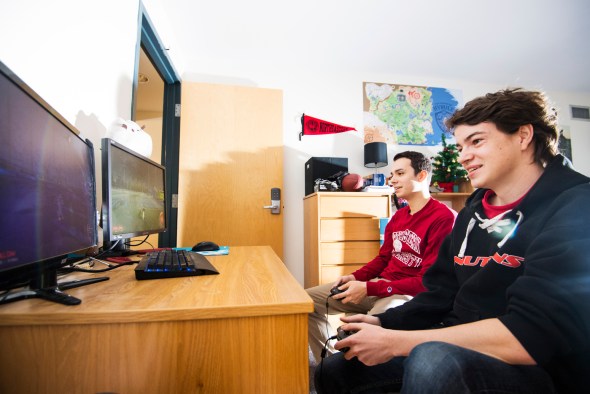
Photo by Adam Glanzman/Northeastern University
Their “Rocket League” strategy is deceptively simple, focused on team communication, patience, and the ability to adapt on the fly. They pass the ball up the pitch in a slow, methodical manner, while communicating every move. When Ohio State played a smothering brand of defense in the championship, preventing them from advancing the ball, they restrategized on the go and beat their opponent at its own game. Heminway, whose gamer tag is “sharkparty,” said, “the team that communicates best is going to win, and we call out every play.”
The esports industry is big and getting bigger, featuring highly paid players, billionaire team owners, and throngs of dedicated fans. Nearly 200 professional gamers made more than $100,000 in 2016, and the Overwatch League, for pros who play the popular first-person shooter, is aiming to become the new NFL.
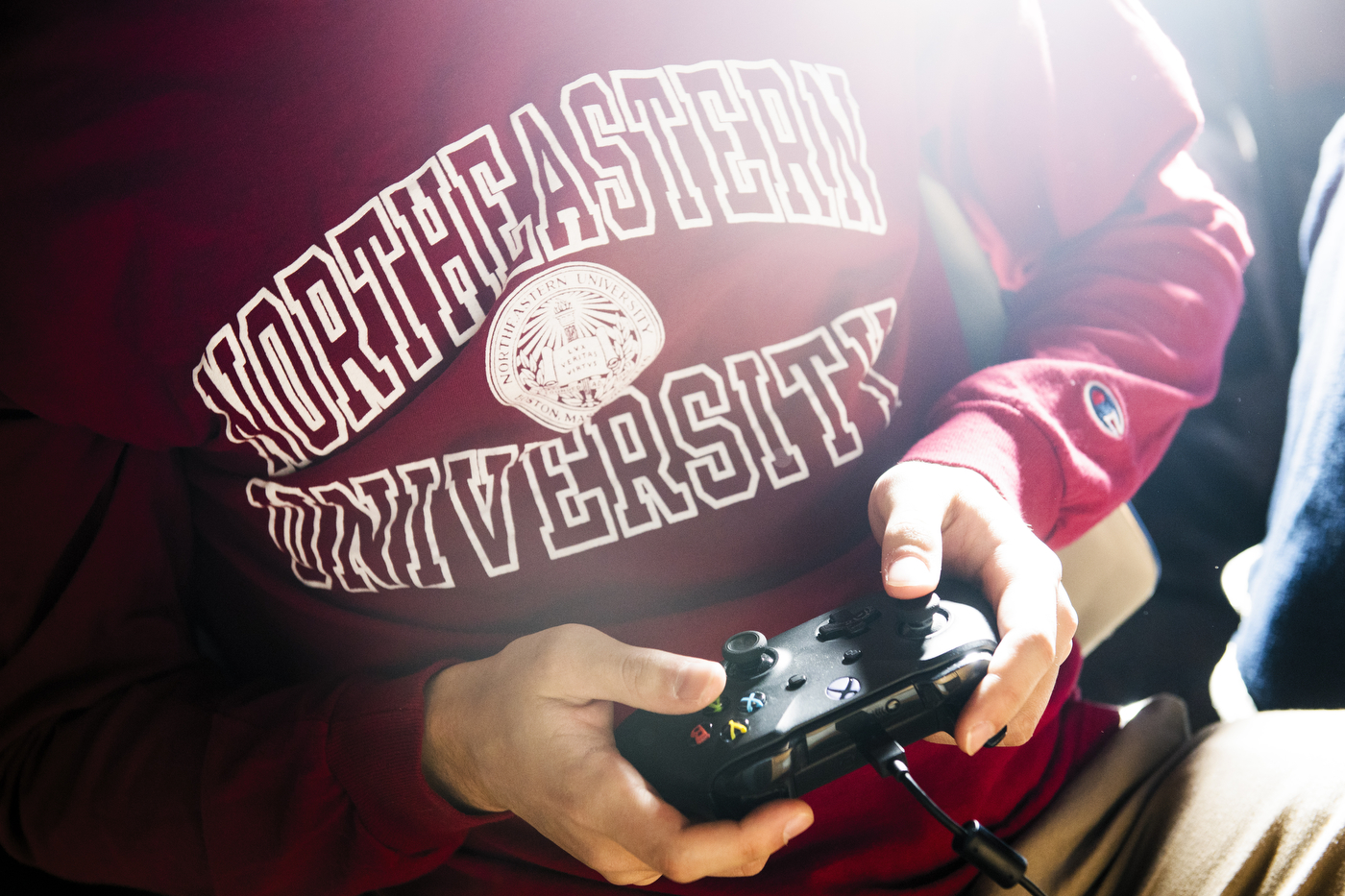
Photo by Adam Glanzman/Northeastern University
But Astié and Heminway don’t plan on going pro in “Rocket League.” They want to focus on college, with an eye toward carving out careers in robotics and artificial intelligence. Astié, a second-year mechanical engineering major, will start co-op at iRobot in January. Heminway, a second-year computer engineering major, will go to work for Doble Engineering Company, the maker of testing and diagnostic equipment for the electric power industry.
Heminway is also interested in working for Psyonix, the company that published “Rocket League,” and designing an autonomous bot that could play the game at an astonishingly high level. “I’ve always been interested in the potential to make a computer think and react as humans do,” he said.

